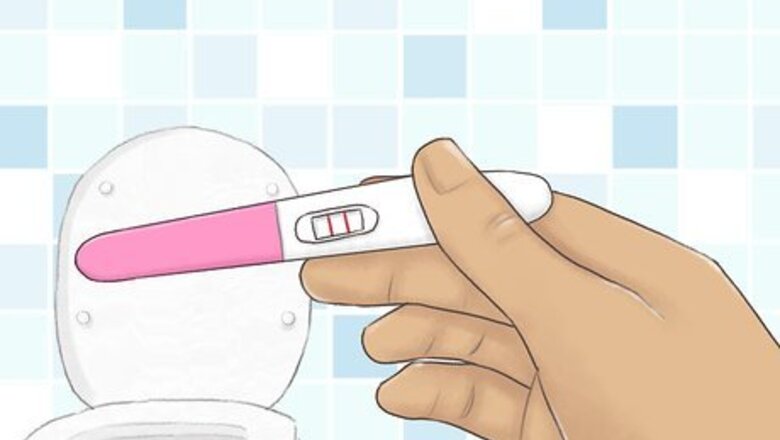
views
X
Trustworthy Source
Mayo Clinic
Educational website from one of the world's leading hospitals
Go to source
Unfortunately, if you want to start your period now, there are no surefire ways to induce it. The best thing to do is to visit your doctor to get to the bottom of the problem and make some lifestyle changes to help regulate your cycle.
Regulating Your Cycle
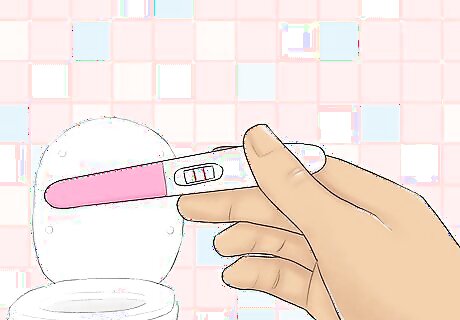
Take a pregnancy test to check if you’re pregnant. One of the most common reasons for a missed period is pregnancy. If you’ve recently been sexually active and miss your period, then take a test as soon as you miss your period to check. Technically, a pregnancy test will be accurate on the first day of your missed period, so you can take it as soon as you want to.

Reduce your stress to keep your menstrual cycle regulated. High stress is a common reason for an irregular period. If you normally feel stressed or anxious, then this could be delaying your period. Try taking some steps to de-stress to see if this brings your menstrual cycle back into balance. Mindfulness activities like meditation, yoga, or deep breathing are great ways to keep your stress levels low. Try practicing one of these each day. Light exercise like walking or jogging are also great for reducing stress. If you have trouble reducing your stress, then there is help available. Try talking to a therapist or psychiatrist to work through your anxiety.

Eat a balanced diet full of nutrients. Being underweight or malnourished can also cause missed periods. If you’re on a restricted diet or exercise a lot without eating enough, this could be the issue. Eat 3 balanced meals a day so you get all the nutrients you need to support your reproductive health. It’s especially important to get enough calcium to keep your menstrual system regulated. Get 1,000-1,300 mg every day. If you suffer from an eating disorder, you can overcome it with the right help. Don’t hesitate to talk to a therapist to work through your problems and stay healthy.

Lose weight if you’re overweight. On the other hand, you could also have irregular periods if you’re overweight. Talk to your doctor and find the ideal weight for yourself, then design a healthy exercise and diet routine to reach it. If you do need to lose weight, make sure you do it safely. Don’t try extreme diets or workout regimens. This can also throw your menstrual cycle off.

Take a break from exercise if you regularly work out hard. If you’re an athlete or workout excessively, then this could also delay your period. This could be because heavy exercise throws off your hormone balance, or because you’re burning too much body fat. Either way, your exercise routine could be to blame, so try dialing it back or taking a rest for a few days to let your body get back to normal. Missing your period is often not specifically from the exercise, but because you’re burning more fat and calories than your body can replace. It’s especially important to eat enough if you’re an athlete and exercise regularly.

Avoid unproven remedies to get your period faster. The internet is full of different remedies for inducing your period, including warm baths, sex, vitamin C, turmeric, ginger, or tea. Unfortunately, no matter how badly you want these tricks to bring on your period, there's just no evidence that they work. While most of these are harmless, they won't help you get your period faster. There are also myths that herbal supplements like black cohosh can trigger your period. Don't use any herbal supplements without asking your doctor first. Not only do they not work, but they affect everyone differently, so you have to make sure supplements are safe for you first.
Medical Treatments
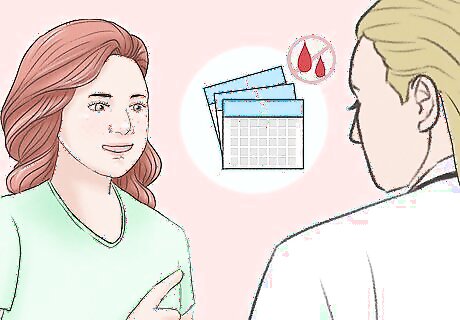
See your doctor if you’ve missed your period for 3 months in a row. It might be alarming to miss your period for 3 months, but don’t worry. There usually isn't a serious cause for this problem. However, it’s very important to book an appointment with your doctor for an exam. This way, you can get to the bottom of the issue. The reasons for missing your period for this long range from stress, malnutrition, hormone imbalances, or excessive exercise. This is why seeing your doctor is important. If you haven’t had your first period by the time you’re 15, then also see a doctor.
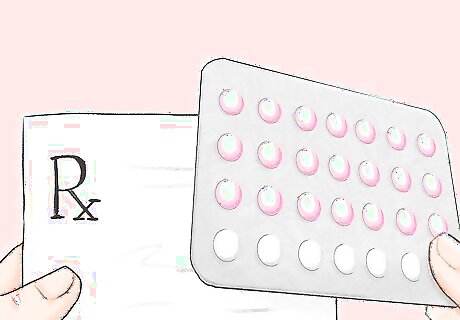
Regulate your menstrual cycle with hormonal birth control. Since birth control keeps your hormone levels regulated, it’s a common treatment for irregular periods. Your doctor may prescribe birth control to prevent your missed periods. Take it exactly as prescribed for the best results. Birth control is also a treatment for polycystic ovary syndrome, which could cause missed periods. Hormonal birth control is prescription-only, so never take any medications that weren’t prescribed for you.
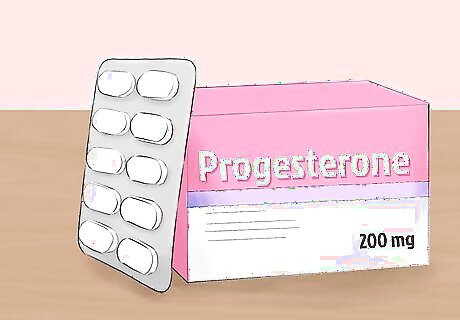
Correct a hormone imbalance with progesterone tablets. Progesterone is a hormone that regulates your menstrual cycle, and a deficiency could be causing your missed periods. In this case, your doctor might prescribe medication to bring your progesterone levels back up. Take this medication exactly how your doctor tells you to. Your doctor will probably do a blood test first to check your hormone levels, then prescribe progesterone if you have a shortage. One progesterone medication is medroxyprogesterone, which your doctor might use if it’s been 6 months since your last period.
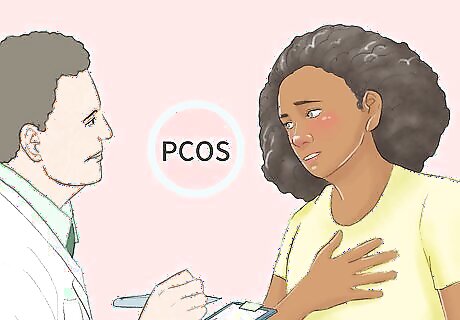
Treat PCOS with hormone therapy. Polycystic ovary syndrome, or PCOS, is a hormonal disorder that causes symptoms like painful, irregular, or heavy periods. The typical treatment is hormone replacement medication, usually with birth control pills or progestin medications. This can help regulate your hormones and menstrual cycle. If you're trying to get pregnant, your doctor might try a combination of different hormone medications to make you ovulate. If you usually have irregular periods and have never been tested for PCOS, then visit your doctor for an exam. This could be causing the problem.

Talk to your doctor about surgery to remove scar tissue. It's possible that a buildup of scar tissue in your uterus, like from fibroids, could also cause missed periods. The typical treatment is minor surgery to remove the scar tissue. If you do have scar tissue in your uterus, then your doctor will talk you through your options for surgery and fixing the problem. Scar tissue is also a common cause for infertility, so your doctor might also recommend surgery if you're trying to get pregnant.


















Comments
0 comment